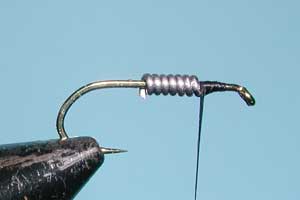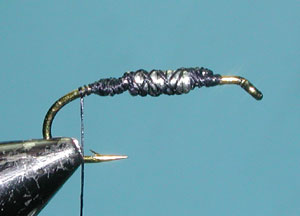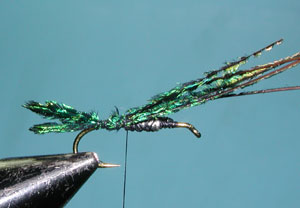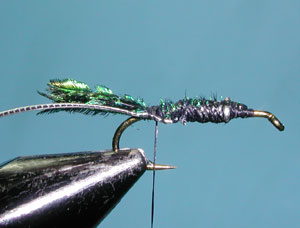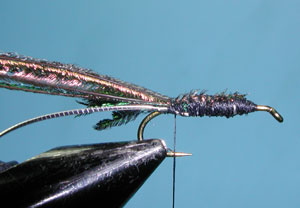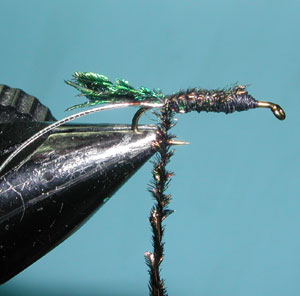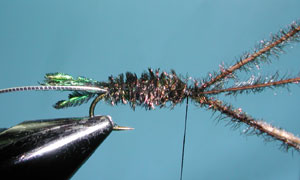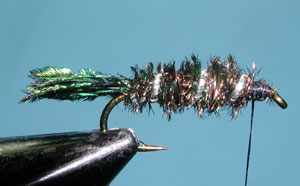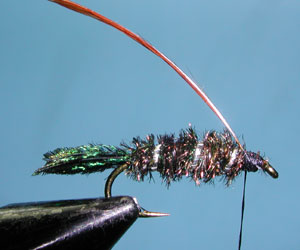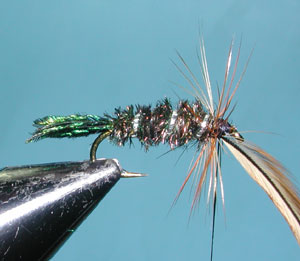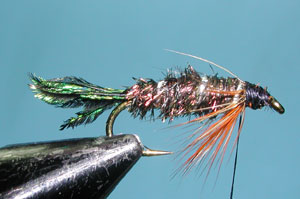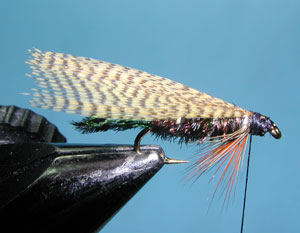Zug Bug – popular with a proper profile
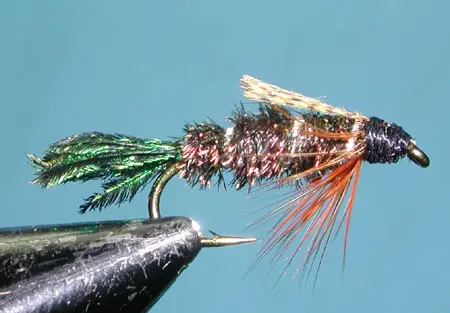
Zug Bug
Tying Instructions
| Materials
to Order Material, click the link |
|
|---|---|
| Hook | TMC 3761 #10-16 |
| Thread | Danville Black 6/0 |
| Head | Danville Black 6/0 |
| Weight | 0.020 Leadfree wire |
| Body | Peacock Herl |
| Tail | Peacock Sword Fibers |
| Wingcase | Dyed Mallard Flank, Wood Duck , clipped |
| Legs | Brown Hen Hackle |
| Ribbing | Oval Silver Tinsel |
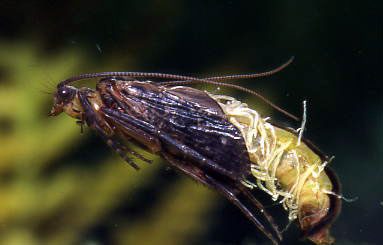
Zug Bug
Cliff Zug designed this fly in West Lawn, PA in the 1930’s and it became a popular fly within the Catskills. During the 1940’s, it made its way west to Yellowstone and, subsequently the Sierra, through the accolades of Arnold Gingrich within his publications and articles.
Peacock Body
Today, like the Prince Nymph, this peacock-bodied nymph continues to be one of the top ten flies on many fly fishermen’s lists. It is thought to predate the Prince Nymph. Since the Zug Bug imitates cased caddis and caddis larvae, it’s important to develop a cigar-shaped body. Utilizing lead-free wire wraps on the middle of the shank helps to promote the proper profile.
Unique to this fly is the wingcase which is only tied down at the front and gives the Zug a caddis-type wing appearance. The use of Peacock Herl for the body and Peacock Sword for the tail also gives this fly a great attraction quality. The Hen Hackle provides the appearance of emerging legs, you might substitute Partridge since it gives the pattern a soft hackle capability with plenty of movement. On slow moving streams, fish the fly near the bottom as a dead drift. The Zug also makes a very good stillwater fly, particularly as a dropper behind a leech pattern.
Variations
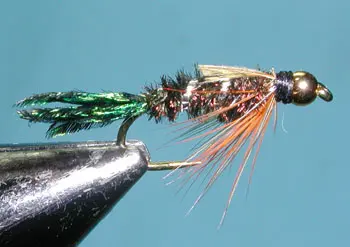
BH Zug Bug
| Hook | TMC 3761 #10-16 |
| Thread | Danville Black 6/0 |
| Head | Gold Bead |
| Weight | 0.020 Leadfree wire |
| Body | Peacock Herl |
| Tail | Peacock Sword Fibers |
| Wingcase | Dyed Mallard Flank, Wood Duck , clipped |
| Legs | Brown Hen Hackle |
| Ribbing | Oval Silver Tinsel |

